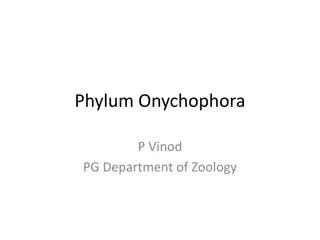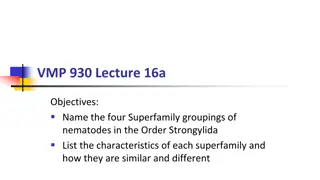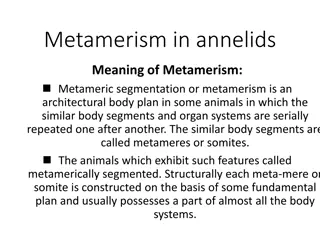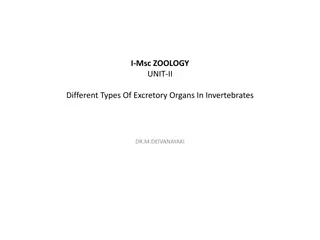Phylogenetic Status of Peripatus: Exploring its Systematic Position
Peripatus, known as claw bearers, exhibits characteristics of both annelids and arthropods, making it an intriguing species in the study of evolutionary biology. Considered as an intermediate link between these two phyla, Peripatus raises questions about its classification and evolutionary history.
0 views • 10 slides
Overview of Superfamilies in Order Strongylida Nematodes
The Order Strongylida in nematodes encompasses four main superfamilies - Trichostrongyloidea, Strongyloidea, Ancylostomoidea, and Metastrongyloidea. Each superfamily is defined by distinct characteristics such as buccal cavity size and location within the host, as well as differences in life cycle a
1 views • 34 slides
Understanding Metamerism in Annelids: Segmentation and Characteristics
Metamerism, the serial repetition of body segments in animals, is a significant architectural plan seen in annelids and other species. This phenomenon involves the presence of similar body segments called metameres, each intricately linked to various organ systems. The occurrence, characteristic fea
7 views • 8 slides
Overview of Different Excretory Organs in Invertebrates
In invertebrates, there are various types of excretory organs such as the contractile vacuole, nephridium, renal gland, coxal gland, and Malpighian tubule. These organs play crucial roles in osmotic regulation and nitrogen excretion. Different phyla exhibit diverse excretory structures like nephridi
0 views • 6 slides



